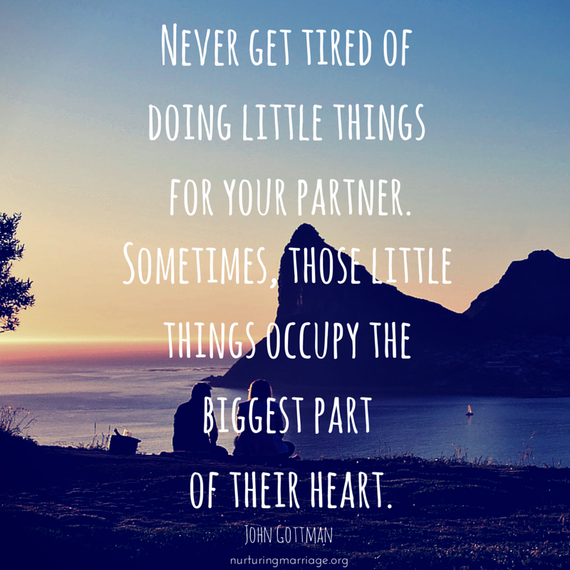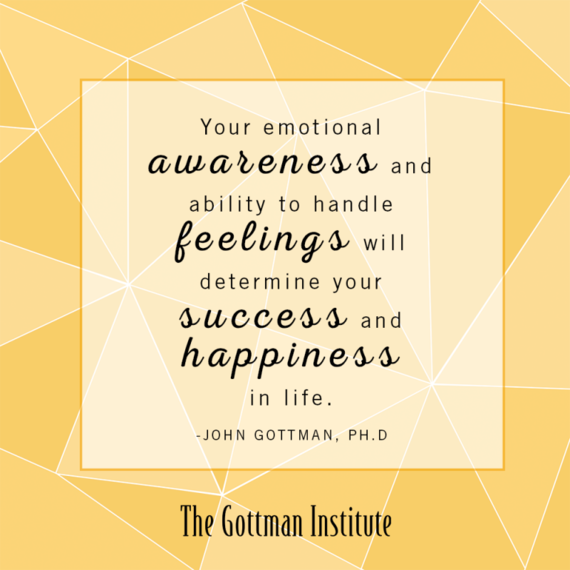
When couples share their exciting news about having a baby, part of me cheers for them, and part of me sends them a quiet wish. This wish is to hang in there, because life after a baby is incredibly different than before.
I see articles about how to increase your connection when babies arrive, or even how to improve your sex life, but I suggest a much different goal for the years when children are under five: promise to stay together. I say that assuming neither partner is hurting the other.
How do you do that?
BE REALISTIC
First, accept that you will see each other at your worst when children are young. Being sleep deprived and trying to handle an aggressive toddler can wear even the happiest person down very quickly. You might try to stay upbeat, dressed nicely, and showered, but some days your child is going to have other ideas. Give each other lots of grace.
Image via Marriage
KEEP THINGS SIMPLE
Less is more! This isn't the time to do a major house renovation (trust me), start a new business, or move if you don't have to. Give yourself the space and time to get into a routine and not feel overwhelmed with tasks. Getting everyone through a "regular" year is enough with little ones.
BE MINDFUL OF YOUR IMPACT
Don't add to your partner's to-do list. This includes not putting your own things away: don't put it down; put it away (Rivka Caroline).
SHOW YOUR PARTNER HOW IMPORTANT SHE OR HE IS TO YOU
It is very easy to get swept into the daily jobs that need to happen with small children. Things like eating, sleeping, and getting dressed (them and us!), which used to be so simple, are now the most complicated parts of life. In the midst of this complication, find ways to demonstrate to your partner that they are still important. Take moments to let your partner know you "see" and understand him or her. I like sending notes to my husband, or taking time at the end of the day to really hear how he is doing.
Image via Nurturing Marriage
STEP AWAY FROM THE "WHO IS MORE EXHAUSTED" COMPETITION
My guess is that you and your partner are both doing a lot to keep your family fed, watered, sheltered, and reasonably intact. You are both tired -- don't try to out-tired the other. Stay on the same team!
DO THINGS TO GIVE EACH OTHER REST
If you know that your partner is worn down beyond what is good for him or her, don't ask any questions: do something helpful. If your wife looks up at you with dark circles under her eyes, asking her if she'd like some help can actually make her feel like she is incapable or weak, and stir anger (our brains are a weird thing!). What is more helpful is to scan the area and see how you can quietly jump in to give her some rest. If you aren't sure, getting groceries, throwing some laundry in, or taking the kids out of the house are all super. Taking the kids out of the house is the best one if you have the time and energy!
My favourite offer from my husband was to have a spare-room sleepover! I loved when he said to me, "I got things tonight. You go ahead and sleep downstairs." I'd close the door, turn the fan on for white noise, and not feel guilty about having a good night's sleep because I knew I'd give him a turn later on.
SPEND TIME TOGETHER AWAY FROM THE KIDS
Some couples like a regular date night. In addition to doing that, my husband and I love getting out of the house together for even just one night a year. Spoil yourselves -- feel special. Have fun together.
ADDRESS YOUR FEELINGS
Many parents of young children have looked at me with surprised eyes: they had not experienced that degree of anger-intensity in their lives before having children. I'll lump myself in that group, too. I remember feeling so utterly and completely enraged that I though I was actually going to blow up.
Our generation of parents is doing something others will not have to tackle. Ours is the first set of parents who are being taught about emotion coaching, affect management and self-regulation while at the same time, trying to teach these to our kids. The parents before us didn't know much about these or how they impact our lives (so we won't blame them for the information that just wasn't available at the time).
It's like we're trying to teach our children a new language while we frantically scan the textbook and learn, too. What's happening is many of us are trying to not use harsh punishment like yelling, spanking, or time-outs, but we don't know what else to do. Some parents are swinging the other way and letting their children call the shots, which is frustrating because we feel out of control, and others using a tougher approach feel constantly frustrated that they can't get their children to do what they need them to. Too much frustration!
This can be compounded if one parent wants to use positive discipline but the other still thinks punishment is the way to go -- this is certainly fodder for marriage trouble.
My suggestion is to commit to learning how to tell each other what we are feeling. A great resource for that is the book What Makes Love Last? by John Gottman, PhD and Nan Silver. I also recommend connecting with them on their Facebook page.
To get better at being aware of our emotional state, use the same instructions I recommend for little ones: name it to tame it. Get used to saying the word which represents how you feel. You don't necessarily need to say this to another person; even just talking out loud to yourself can help. I sometimes say, "I'm angry right now. I wish there was someone here to help me." After saying the words, we can then think about what we need and what our options are for fulfilling that need.
In order to learn more about positive discipline, I recommend getting my Taming Tantrums App (iPhone & Android), following me on Facebook, or reading some of the books I recommend on the books page of my website.
This post was originally published at YummyMummyClub.ca


